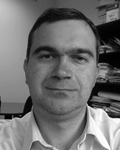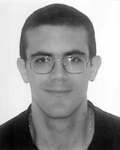Abstract:
The use of technology in learning environments should be targeted at improving the learning outcome of the process. Several technology enhanced techniques can be used for...Show MoreMetadata
Abstract:
The use of technology in learning environments should be targeted at improving the learning outcome of the process. Several technology enhanced techniques can be used for maximizing the learning gain of particular students when having access to learning resources. One of them is content adaptation. Adapting content is especially important when using limited devices such as mobile phones. Content can be adapted to restrictive network conditions, to limited terminal capabilities, to different user preferences and learning styles or to external elements in the learning and user contexts. This paper studies and analyzes the impact of modifying and therefore adapting the speed of reproduction of audio content in mobile phones on the learning gain of the user. The paper shows that the optimum speed for Spanish audio is around 206 words per minute. The impact of enhancing the audio reproduction by presenting an equivalent version in text displayed on the screen of the mobile phone is also studied. The paper concludes that this text is only important for students younger than 15. The paper analyzes data from 100 Spanish speaking users that are grouped according to different criteria, such as gender, age, or level of studies. The results are presented and discussed.
Published in: IEEE Transactions on Learning Technologies ( Volume: 4, Issue: 3, July-Sept. 2011)
DOI: 10.1109/TLT.2011.8

Universidad Carlos III de Madrid, Leganés, Madrid, Spain
Mario Muñoz-Organero received the MSc degree in telecommunications engineering from the Polytechnic University of Catalonia in 1996, and the PhD degree in telecommunications engineering from the Carlos III University of Madrid, Spain, in 2004. He is an associate professor of telematics engineering at the Carlos III University of Madrid. His research interests include topics related to open architectures for e-learning sys...Show More
Mario Muñoz-Organero received the MSc degree in telecommunications engineering from the Polytechnic University of Catalonia in 1996, and the PhD degree in telecommunications engineering from the Carlos III University of Madrid, Spain, in 2004. He is an associate professor of telematics engineering at the Carlos III University of Madrid. His research interests include topics related to open architectures for e-learning sys...View more

Universidad Carlos III de Madrid, Leganés, Madrid, Spain
Pedro J. Muñoz-Merino received the MSc degree in telecommunications engineering from the Polytechnic University of Valencia, Spain, in 2003, and the PhD degree in telecommunications engineering from the Carlos III University of Madrid, Spain, in 2009. He is a teaching assistant of telematics engineering at the Carlos III University of Madrid. He has participated in various research projects, such as E-LANE or MOSAIC learn...Show More
Pedro J. Muñoz-Merino received the MSc degree in telecommunications engineering from the Polytechnic University of Valencia, Spain, in 2003, and the PhD degree in telecommunications engineering from the Carlos III University of Madrid, Spain, in 2009. He is a teaching assistant of telematics engineering at the Carlos III University of Madrid. He has participated in various research projects, such as E-LANE or MOSAIC learn...View more

Universidad Carlos III de Madrid, Leganés, Madrid, Spain
Carlos Delgado Kloos received a PhD degree in computer science from the Technical University of Munich, Germany, and another PhD degree in telecommunication engineering from the Technical University of Madrid, Spain, in 1986. He is a full professor of telematics engineering at the Carlos III University of Madrid, Spain, where he was the founding director of the Department of Telematics Engineering. He is presently the ass...Show More
Carlos Delgado Kloos received a PhD degree in computer science from the Technical University of Munich, Germany, and another PhD degree in telecommunication engineering from the Technical University of Madrid, Spain, in 1986. He is a full professor of telematics engineering at the Carlos III University of Madrid, Spain, where he was the founding director of the Department of Telematics Engineering. He is presently the ass...View more

Universidad Carlos III de Madrid, Leganés, Madrid, Spain
Mario Muñoz-Organero received the MSc degree in telecommunications engineering from the Polytechnic University of Catalonia in 1996, and the PhD degree in telecommunications engineering from the Carlos III University of Madrid, Spain, in 2004. He is an associate professor of telematics engineering at the Carlos III University of Madrid. His research interests include topics related to open architectures for e-learning systems, open service creation environments for next generation networks, advanced mobile communication systems, pervasive computing, and convergent networks. His main current interest is in e-learning and m-learning technologies. He has participated in European-funded projects, such as E-LANE, and in Spanish-funded projects, such as MOSAIC learning and Learn3. He also has more than four years of experience working for the telecommunications industry in companies such as Telefonica R&D and Lucent Technologies. He is a member of the IEEE.
Mario Muñoz-Organero received the MSc degree in telecommunications engineering from the Polytechnic University of Catalonia in 1996, and the PhD degree in telecommunications engineering from the Carlos III University of Madrid, Spain, in 2004. He is an associate professor of telematics engineering at the Carlos III University of Madrid. His research interests include topics related to open architectures for e-learning systems, open service creation environments for next generation networks, advanced mobile communication systems, pervasive computing, and convergent networks. His main current interest is in e-learning and m-learning technologies. He has participated in European-funded projects, such as E-LANE, and in Spanish-funded projects, such as MOSAIC learning and Learn3. He also has more than four years of experience working for the telecommunications industry in companies such as Telefonica R&D and Lucent Technologies. He is a member of the IEEE.View more

Universidad Carlos III de Madrid, Leganés, Madrid, Spain
Pedro J. Muñoz-Merino received the MSc degree in telecommunications engineering from the Polytechnic University of Valencia, Spain, in 2003, and the PhD degree in telecommunications engineering from the Carlos III University of Madrid, Spain, in 2009. He is a teaching assistant of telematics engineering at the Carlos III University of Madrid. He has participated in various research projects, such as E-LANE or MOSAIC learning, and is the coauthor of several papers in conferences and journals. His research interests include e-learning, technology-enhanced learning, and web science. He is a member of the IEEE.
Pedro J. Muñoz-Merino received the MSc degree in telecommunications engineering from the Polytechnic University of Valencia, Spain, in 2003, and the PhD degree in telecommunications engineering from the Carlos III University of Madrid, Spain, in 2009. He is a teaching assistant of telematics engineering at the Carlos III University of Madrid. He has participated in various research projects, such as E-LANE or MOSAIC learning, and is the coauthor of several papers in conferences and journals. His research interests include e-learning, technology-enhanced learning, and web science. He is a member of the IEEE.View more

Universidad Carlos III de Madrid, Leganés, Madrid, Spain
Carlos Delgado Kloos received a PhD degree in computer science from the Technical University of Munich, Germany, and another PhD degree in telecommunication engineering from the Technical University of Madrid, Spain, in 1986. He is a full professor of telematics engineering at the Carlos III University of Madrid, Spain, where he was the founding director of the Department of Telematics Engineering. He is presently the associate vice-chancellor, the director of two master's programs (one on e-learning), and the director of the Nokia Chair. He has been involved in more than 20 projects with European (Esprit, IST, @LIS), national (Spanish Ministry), and bilateral (Spanish-German and Spanish-French) funding. He has authored more than 200 articles in national and international conferences and journals. He has authored one book, coauthored another, and coedited five. He was the coordinator of the European-funded E-LANE project on e-learning in Latin America and a member of the board of directors of the LRN Consortium. His research interests include educational technologies. He is a senior member of the IEEE.
Carlos Delgado Kloos received a PhD degree in computer science from the Technical University of Munich, Germany, and another PhD degree in telecommunication engineering from the Technical University of Madrid, Spain, in 1986. He is a full professor of telematics engineering at the Carlos III University of Madrid, Spain, where he was the founding director of the Department of Telematics Engineering. He is presently the associate vice-chancellor, the director of two master's programs (one on e-learning), and the director of the Nokia Chair. He has been involved in more than 20 projects with European (Esprit, IST, @LIS), national (Spanish Ministry), and bilateral (Spanish-German and Spanish-French) funding. He has authored more than 200 articles in national and international conferences and journals. He has authored one book, coauthored another, and coedited five. He was the coordinator of the European-funded E-LANE project on e-learning in Latin America and a member of the board of directors of the LRN Consortium. His research interests include educational technologies. He is a senior member of the IEEE.View more

